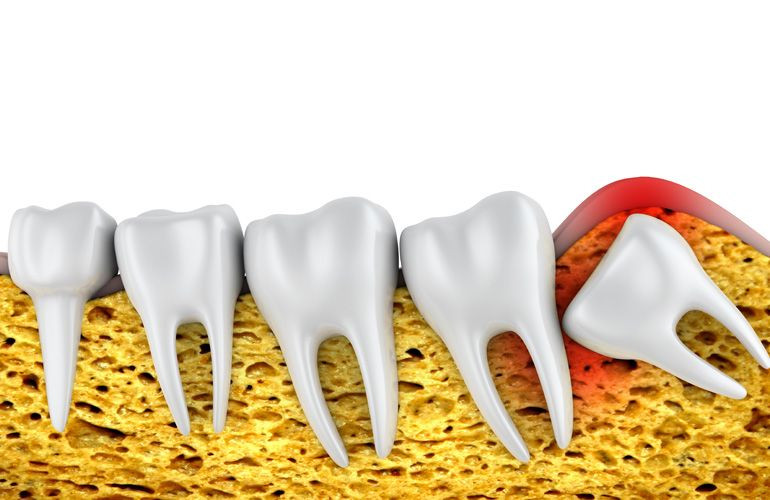As the saying goes, wisdom comes with age, though it didn’t mention that it can also mean the growth of wisdom teeth. These are the third set of molars that typically develops between the ages 17 and 21, which are found way back in the mouth on either the top, bottom, or both sides of the mouth.
It was once an essential part of the mouth as it is used to help grind an early human diet of roots, leaves, and meat, however, modern times have evolved the way food is eaten and cooked. This means that wisdom teeth are now unnecessary, and is often removed at the first signs of development as it now brings more harm than good.
In that regard, at least 53% of people had at least one wisdom tooth eruption, while others are lucky enough to completely avoid it. To those who feel the first signs of a growing wisdom tooth, it’s in your best interest to seek dental care and have an X-ray confirm it as it can cause oral health problems in the long run.
For instance, impacted wisdom teeth grow sideways instead of outward the gums, harming the surrounding teeth and ultimately resulting in painful situations. On that note, this article aims to break down what makes wisdom teeth risky for your oral health.
In what ways can wisdom teeth cause problems?
If there isn’t enough space for wisdom teeth to grow properly, it can develop under your gums and impact the rest of your teeth, which can cause severe pain to your jaw.
Other than pain, wisdom teeth trapped within your gums can allow food to enter hard-to-reach cracks in the infected area, which can make it a breeding ground for cavity-causing bacteria. This can result in gum disease or tooth decay, which will inevitably lead to swelling, pain, damage to neighboring teeth, as well as weaken the bone structure that supports your teeth. Other problems that can manifest include the following:
- Crooked teeth
- Crowded teeth
- Increased tooth decay
- Jaw pain
- Development of cysts under the gums, which can turn into tumors in the worst-case scenario
Wisdom Teeth Removals can be Complicated
The American Dental Association recommends immediate removal of wisdom teeth when early signs are detected. This is because wisdom teeth that are extracted at a younger age tend to heal better from surgery, while adults may find it a complicated procedure as allowing the wisdom teeth to sit for longer periods, which can cause it to develop deep roots as well as establish a fully-formed bone structure.
Once this happens, the dentist or surgeon will need to cut the bone and risk nerves or other delicate tissues in the process, which can make the healing process a painful ordeal. To help ease the weeks of pain and swelling after the treatment, check out the tips below:
- Place an ice pack on the infected area of your jaw for 15 to 20 minutes. In that regard, be sure to avoid heat.
- For the first few weeks after the wisdom teeth extraction, rinse your mouth gently with warm water salt solution in every two to three hours.
- If the pain persists, take over-the-counter pain relievers such as ibuprofen or naproxen
If you’re looking for a local dentist to help you with your dental health, get in touch with us today for a free consultation.



